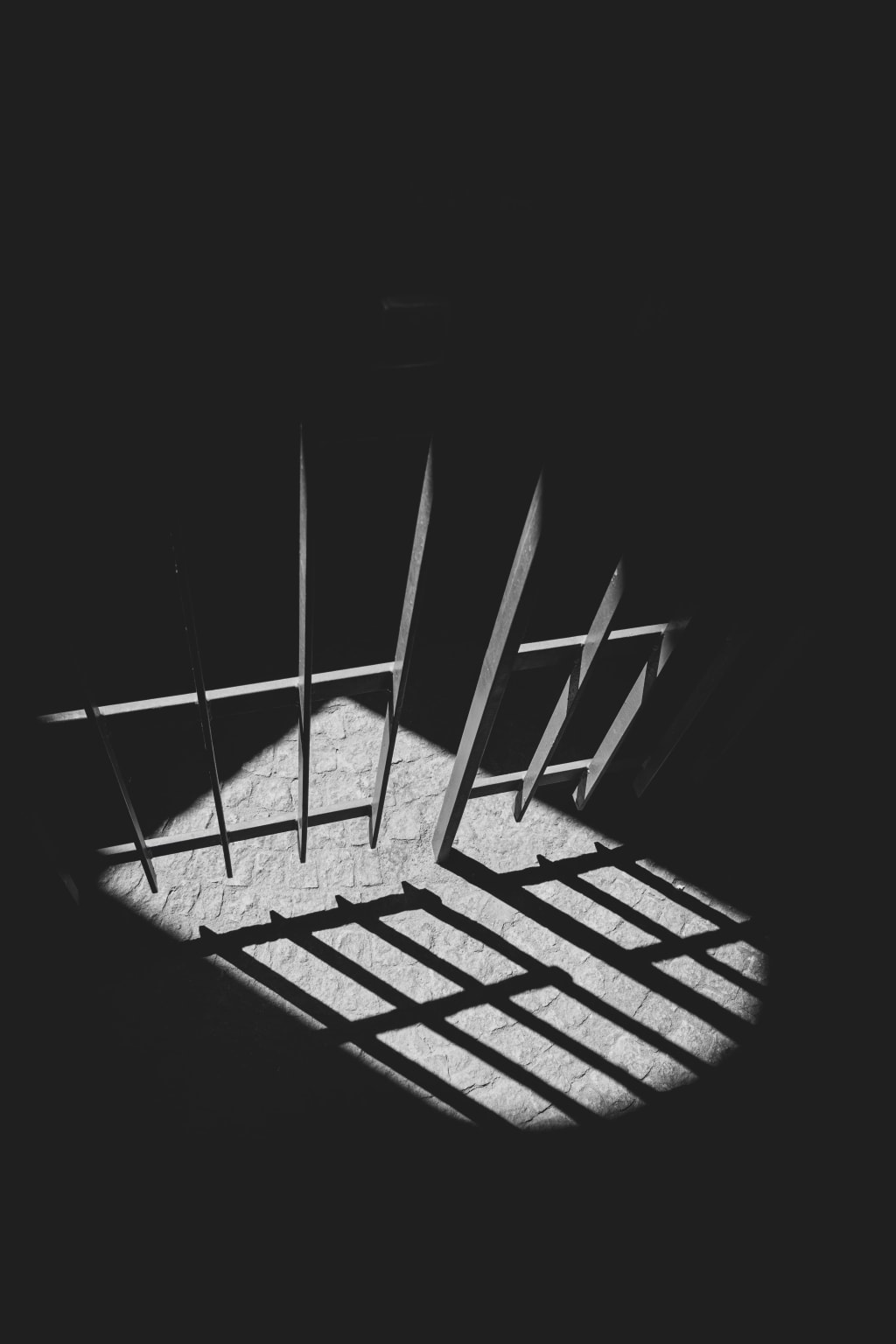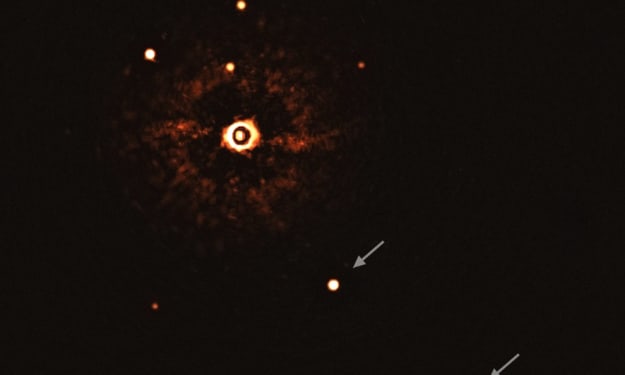Koestler's fragrance of mortality
Understanding the apparent contradiction between Arthur Koestler's life changing experience in prison, and his later decision to take his own life

The life of the influential journalist and author, Arthur Koestler, came to a tragic end when he took his own life in 1983. The prolific literary stream which poured from Koestler’s creative mind in life was largely driven by his ceaseless quest to find meaning from the experiences he had in a Spanish prison in the 1930s, under sentence of death.
Did those experiences influence his determination to take his own life?
Koestler’s experience in prison had some remarkable parallels with other people’s reported accounts of near death experiences. Only, of course, he didn’t die – not even close.
It seems rare for a person who has had such a spiritually transformative experience to have taken the decision to terminate his life. Reading and analysing thousands of accounts has shown me that by far the majority of reporters affirm their determination to see out their allotted time in this phase of existence, regardless of how painful it is for them or how much emotional distress they may suffer. And, from what I have read, they are past masters at the art of suffering.
For example: ‘[O]n this station platform that my life seems to be, I wait until it is time for my departure to join Him’; ‘[W]hen my time is done in this dimension the next one will be more meaningful that words can describe’; ‘When I woke up, I wanted to go right back there! No, I did not become suicidal, but I felt I could not wait to go back to that place.’

Koestler's suicide note reads, in part, that he had: ‘… some timid hopes for a de-personalised after-life beyond due confines of space, time and matter and beyond the limits of our comprehension. This "oceanic feeling" has often sustained me at difficult moments, and does so now, while I am writing this.’ In so doing, he appears to be making an active distinction between 'fear of death' (of which he had none), and 'fear of dying' (which seemed very apparent).
Despite the passage of five years from his imprisonment to the publication of the original German-language version of his diary-style autobiography “Dialog with Death”, there is not much evidence of assimilation or processing of his experience. The only reference to his experience he makes at the time is:
at least once a day there is a short-circuit in my consciousness, and for minutes on end I behold the reality in a full blaze of light, as though illumined by some psychical explosion
Very suggestive of more detail to come.
Revealing more later on is not at all unusual among reporters of near-death experiences. According to one report: ‘To have a near-death experience is one thing, to integrate it into one’s personal life takes many, many years. It’s very painful to give up the things we consider meaningful in our lives.’ Even for a man as transparently introspective and as ready to criticise himself as Koestler, it takes some acts of supreme will to admit to oneself that the model of the world one has so carefully built up through life may no longer be fit for purpose.
It was only some 12 years after the delayed publication of the English language edition of "Dialog ..." that a more mature and complete reflection of his experience came out in print. Even from the title of the second volume of his autobiography, "The Invisible Writing", it is immediately apparent how much importance he attached to his experience - it literally changed his life. In his own words:
'Dialogue with Death' is an autobiographical sketch written at the age of thirty-two; [this] is an ‘explanation' of the same events, written at the age of forty-seven
This was not the first time he had tried to make sense of his experience in print:
In the years that followed I wrote a number of books in which I attempted to assimilate the experiences of cell No. 40.

During extended periods of emotional distress in prison, it was his scratchings of the ancient Greek philosopher Euclid’s mathematics on the walls of his cell that touched off his moments of insight, his windows of extended perception. He wrote:
Now, as I recalled the method and scratched the symbols on the wall, I felt the same enchantment ... The significance of this swept over me like a wave

This wave departed him almost at once, leaving him 'a wordless essence, a fragrance of eternity, a quiver of the arrow in the blue' (the title of the first volume of his autobiography). Reflecting immediately afterwards on his present - apparently pretty poor - state of existence in prison under sentence of death, his experience evolved to a crescendo:
Then I was floating on my back in a river of peace, under bridges of silence. It came from nowhere and flowed nowhere. Then there was no river and no I. The I had ceased to exist

For Koestler, this experience was timeless, and the information conveyed limitless:
Whether the experience had lasted for a few minutes or an hour, I never knew. In the beginning it occurred two or even three times a week, then the intervals became longer ... The ‘l' ceases to exist because it has, by a kind of mental osmosis, established communication with, and been dissolved in, the universal pool. It is this process of dissolution and expansion which is sensed as the 'oceanic feeling', as the draining of all tension, the absolute catharsis, the peace that passeth all understanding
He was filled as a result
with a direct certainty that a higher order of reality existed, and that it alone invested existence with meaning. I came to call it later on 'the reality of the third order'
To state that Koestler found this information a challenge to process is to severely understate the gravity of the situation for him. Writing of what he called his 'mystical experiences', he confesses
It is extremely embarrassing to write down a phrase like that when one has read The Meaning of Meaning and nibbled at logical positivism and aims at verbal precision and dislikes nebulous gushing
Wrestling with the implications of what he now knew for sure, as balanced against everything that he knew previously, was like ‘waging a ... war against the concise, rational, materialistic way of thinking’ that he habituated previously. This internal contest continued in one form or other to shape Koestler’s thought.
An episode of a passing moment of extended perception is one thing; how one elects then to process this knowledge and act on it is quite another.
Koestler’s struggle is very reminiscent of Bertrand Russell's spiritually transformative experience under conditions where he too was under severe emotional distress - witnessing a close friend succumb to a bout of ill health. Russell wrote: ‘I had become a completely different person … I found myself filled with semi mystical feeling about beauty.’ Russell found that his analytical way of thinking took over again pretty quickly, such that he later dismissed the episode and resumed his previously dominant reductionist pattern of thought, albeit slightly coloured emotionally.
With Koestler though, his restless, inquiring, analytical mind needed answers, and he was determined to do all in his power to access them. He therefore devoted the second half of his life to questions loosely related to scientific endeavour and the paranormal, much to the dismay of his most earnest fans among the literati.
Koestler was attracted to, yet at the same time violently repelled by, traditional religious philosophies. This tension coloured his later understanding of his episodes of enhanced perception, that he took to be evidence of a depersonalised assimilation with the infinite.

His considered understanding was for him much as we would understand the distinction between pantheism and panentheism today: he rationalised that after his death the 'I' that constituted Koestler would dissolve, much as a crystal of salt in the ocean.
His vision of a depersonalised fate is an important clue to his motivations on how he chose for his life to end. One 'dissolving' into the 'ocean' does not then, in his view, bear any responsibility for acts committed during life. Suicide then remains an avenue of escape, in stark contrast to the vast majority of reporters who were abjectly horrified by the impact of their actions on others. In the words of one: ‘I felt all of the pain and hurt that I had inflicted upon him inside of myself.’
Yet, at the same time, existence, to Koestler’s understanding, continues in one form or other, even though quite foreign to us. For him death loses its sting, and his fear of death is removed.
This much is apparent from Michael Scammel’s biography, ‘The Indispensable Intellectual’:
[W]as he afraid of death? "I've always been afraid of the process of death," said Koestler. "I fear the pain and humiliation." But death itself didn't bother him. "Why should it? I don't envisage a hell or purgatory. I think it's conceivable that I will become a grain of salt in the ocean. I find that a pleasant prospect."
For Koestler, the unlimited knowledge and unconditional love he felt at once removed his fear of death, but not of dying. This is because of the depersonalised existence he forecast; he saw death as the dissolution of the self.
He therefore did not understand that actions we take in this phase of life have impacts not only on people still alive, but also on his own progress through his next phase of existence. For him, suicide was an escape from the trials of the dying process, rather than an opportunity to grow his own capabilities and serve others.

Late in life, Koestler summarised his understanding of himself in the following words: "If you were to ask me whether I was a mystic, I would say yes; if you were to ask me whether I believe in the all in one and the one in all I would also say yes."
It remains a matter of speculation how trust that a Creative Source existed could have influenced Koestler’s fatal decision. For many whose lives have been transformed through a near-death experience or spiritually transformative experience, they would emphatically never cut off this precious thread of existence by their own hand, however painful it is to them. For the sake of those whose lives they seek to illumine.

About the Creator
Andrew Scott
Student scribbler






Comments (1)
I feel this touches on the shared human experience of fear of dying. The randomness of it is the ultimate terror. Humans love knowing things and to not know how it’s going to end is truly terrifying.